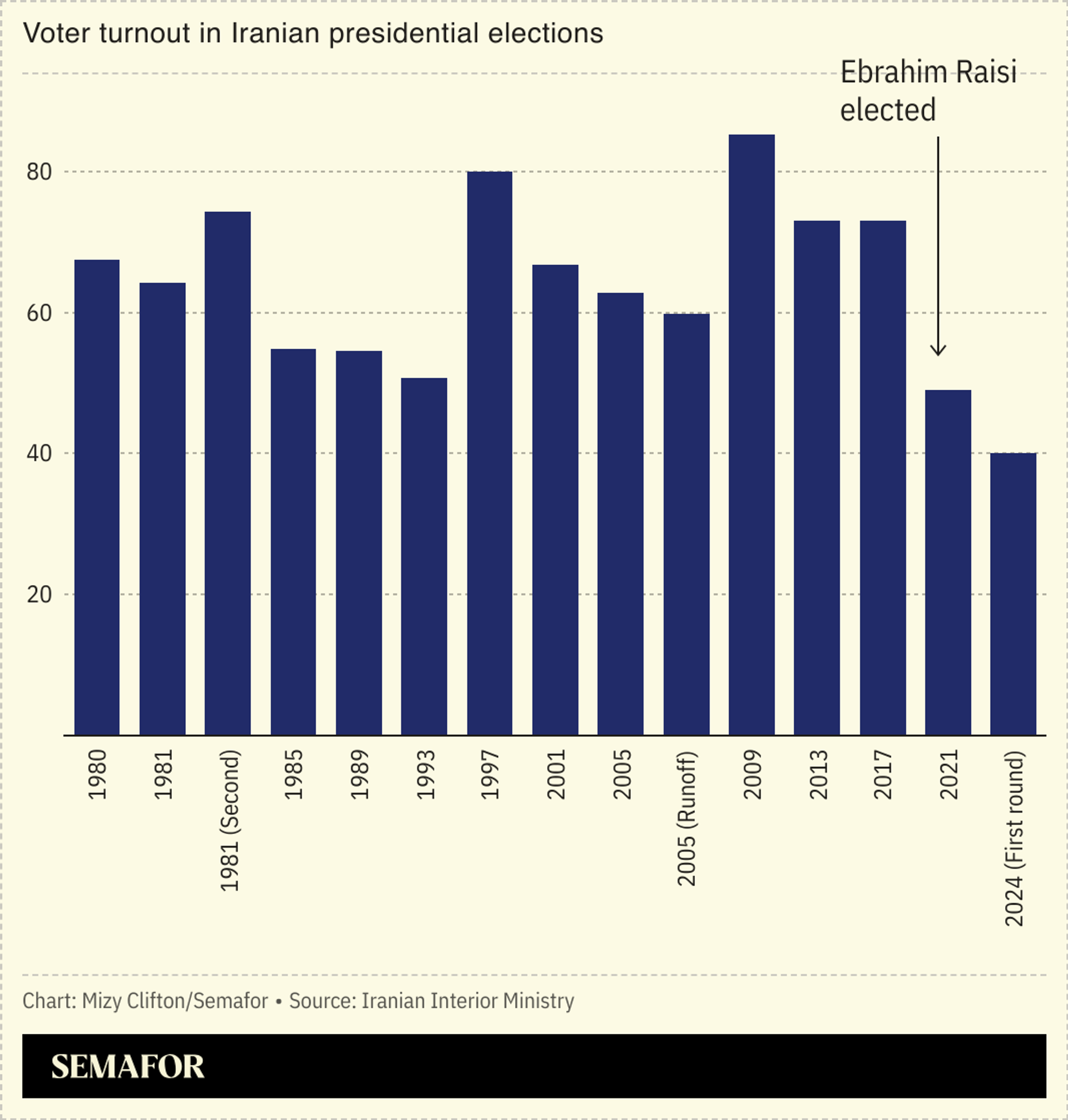The News
Iran will hold a runoff election this week after the reformist candidate Masoud Pezeshkian secured a narrow lead over hardliner and former chief nuclear negotiator Saeed Jalili, but failed to win an outright majority in the vote’s first round on Friday amid record low turnout.
Just 40% of eligible Iranians voted, according to the Ministry of Interior — the lowest turnout since the Islamic Republic was formed in 1979.
SIGNALS
Record low turnout may have been a “silent referendum” on the Islamic Republic’s legitimacy

Iranian elections serve to demonstrate the continuity and functionality of the regime, an expert at UK-based think tank Chatham House told Semafor. Supreme Leader Ayatollah Ali Khamenei tried to boost turnout by saying that “any vote [would] be a vote to the Islamic Republic.” But after the vote, some said that the low turnout was a “silent referendum” against the establishment, and even hardline pundits speculated as to why public trust seemed eroded, AI-Monitor’s Tehran correspondent noted. The lackluster numbers suggest most Iranians don’t see elections “as a meaningful path to change,” an expert told Eurasia Review. However, that Pezeshkian received a million more votes than his opponents may suggest people still have faith in the reformist camp, a Bloomberg columnist wrote
Pezeshkian’s appeal to women could bump up his support
Ahead of the runoff, both candidates may try to paint each other as existential threats — Pezeshkian by accusing Jalili of representing religious extremism, Jalili by suggesting Pezeshkhian is a threat to Iran’s theocracy, The Economist noted. They may also exploit ethnic tensions: Jalili appeals to the Persian-speaking majority, while Pezeshkian could mobilize minority resentment. Women could also present a powerful constituency: Anecdotal evidence suggested that women boycotted the vote more than men, and Pezeshkian could try to bring them into his camp, perhaps by promising future cabinet positions, the outlet added.

